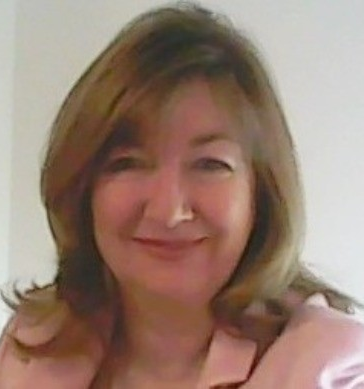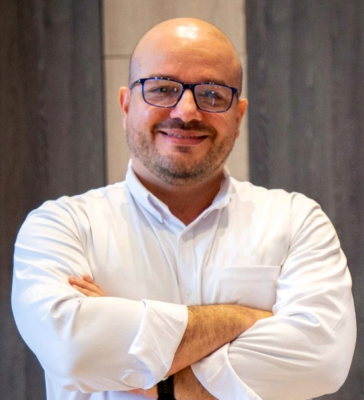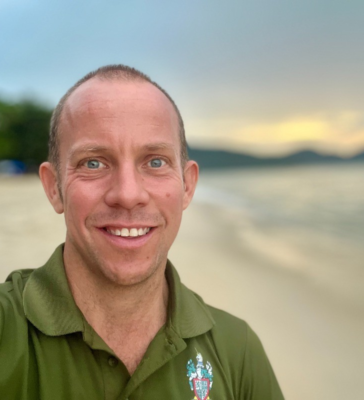
Karen Scott-Boyd
Current Employer/Organisation Name
Self-employed Consultant
What have you been doing since leaving Exeter, and what are you doing now?
Since leaving Exeter, my journey has been both fulfilling and purpose-driven. I’ve taken on the role of carer for my adult daughter, which has been a significant part of my life and an ongoing source of personal growth and insight. Alongside this, I’ve been deeply engaged in writing an eBook based on my doctoral research on Compassion-Based Reflective Practice (CBRP). This research led me to design a model that emphasises self-compassion and well-being within reflective practice, addressing the challenges of resilience and emotional regulation, topics I believe are vital for thriving in both professional and personal spheres. Currently, I’m continuing to develop the eBook with the aim of making the CBRP model accessible to a wider audience, including educators and students. This blend of caring and writing allows me to bring both practical empathy and academic insight to the mentoring relationship
Why did you choose this career? And what do you enjoy most about your work?
I chose this path out of a commitment to social justice and a desire to foster well-being for individuals and communities. My work in education and research led me to develop the Compassion-Based Reflective Practice (CBRP) model to support resilience and emotional regulation, particularly for those in demanding, care-focused professions like teaching. As a carer for my daughter, I have the unique opportunity to ‘walk my talk’ with CBRP, applying compassion and reflective practice in my own life. What I enjoy most about this work is seeing how compassion-based reflection can transform people’s perspectives, helping them manage stress and stay true to their values. Creating tools that foster emotional resilience is incredibly fulfilling, and I look forward to sharing these insights with students as they embark on their careers.
Please tell us if you were a member if any societies, groups of sports clubs?
I was actively involved with the Creativity and Emergent Educational-futures Network (CEEN), where I contributed in an administrative role to support their work on innovative educational practices. Additionally, I volunteered with an arts and crafts group, which allowed me to connect with others creatively and share ideas. As a postgraduate mentor, I also had the opportunity to support and guide fellow students, which was a rewarding experience and a great chance to build mentoring skills I hope to bring to this role.
What did you enjoy most about your programme and what was the biggest highlight?
What I enjoyed most about my programme was the camaraderie with both students and staff. Building these connections added a real sense of community to the experience, which was especially valuable during the intensity of postgraduate studies. While I wouldn’t say I have a specific highlight, I am deeply grateful to the colleagues who volunteered their time to participate in my research. Their support was invaluable, and it reinforced the collaborative spirit that made my time at Exeter meaningful.
What did you most enjoy about studying here?
What I enjoyed most about studying at Exeter was the intellectually stimulating environment and the supportive community. Engaging with diverse perspectives from both students and faculty helped me expand my thinking and develop my research in meaningful ways. The sense of belonging and shared purpose made the experience both fulfilling and inspiring.
Why did you choose to study at Exeter?
I chose to study at Exeter because of its excellent academic reputation and strong research focus in my area, as well as the opportunity to establish myself in Devon. Originally from outside the area, I felt that Exeter offered the perfect environment to both grow academically and put down roots in a new community. This choice allowed me to connect with people locally and build a supportive network while pursuing my studies.
What skills and experiences have been most useful for your career?
Throughout my 25-year career in community education, I’ve developed skills that have been invaluable for my current work. Reflective practice, compassionate communication, and resilience have all been central to my approach, especially in roles that require balancing empathy with effectiveness. My experience in community education has taught me the importance of adaptability, collaboration, and connecting with people from diverse backgrounds, which has been foundational to my work in developing the Compassion-Based Reflective Practice (CBRP) model. This background has also strengthened my ability to support others’ growth, a key skill I bring to my mentoring role today
What advice would you give to a current student who wishes to pursue your career?
My advice to a student wishing to pursue a career in education, research, or mentoring would be to prioritise developing emotional resilience and self-compassion. The work can be deeply rewarding but also challenging, and learning how to manage stress while staying connected to your values is essential. Seek out opportunities to collaborate and engage with others, as building a supportive network is key. Reflecting on your experiences, both successes and challenges, will help you grow and improve. Lastly, be open to adapting your approach as you go, and remember that the work is a continuous journey of learning and self-discovery.
What are your plans for the future?
My plans for the future revolve around expanding and sharing the Compassion-Based Reflective Practice (CBRP) model. I’m currently working on completing my eBook, which I hope will help educators and others in care-focused professions build emotional resilience and well-being. In addition, I aim to grow my consultancy, offering workshops and training to individuals and organisations interested in incorporating CBRP into their professional lives. As part of my ongoing commitment to community impact, I also plan to continue mentoring, supporting others in their personal and professional growth. Ultimately, my goal is to contribute to a culture of compassionate, mindful reflection that can foster greater well-being and resilience in both individuals and communities.

